A review of The Dinner Party by Colleen Keating
Thank you to Beatriz Copello for her affirming review of The Dinner Party and to Magdalena Ball for her encouragement and her work for publishing of poets in Compulsive Reader
 Reviewed by Beatriz Copello
Reviewed by Beatriz Copello
The Dinner Party:
A Poetic Response
by Colleen Keating
Ginninderra Press
ISBN: 9781761095306, Paperback, May 2023
Having read and reviewed Colleen Keating’s books Hildegard of Bigen: A Poetic Journey, Olive Muriel Pink: Her Radical and Idealistic Life and The Dinner Party: A Poetic Response, I can say without any doubt that Colleen Keating is not only a brilliant lyric poet but she is also a talented researcher. These three books are about extraordinary women who were mostly ignored in history or just plain forgotten.
The Dinner Party will engage the reader from its first page which explains where the idea from this book was born. Keating explains that “The Dinner Party” is a permanent feminist installation of the artwork of Judy Chicago. This artwork, created in 1978, resides in the Elizabeth A. Sackler Centre for Feminist Art, in the Brooklyn Museum in New York. The poet describes this installation as a large triangular table of 15 metres long set for a banquet for 39 women in memorial recognition to forgotten women, mythical and real from the Western World history. In the introduction to the book the author quotes Judy Chicago who said: “Women have always made a significant contribution to the development of human civilisation, but have been consistently ignored, denied, or trivialised.’’
Keating has divided the sections of the book according to the wings of the triangle of the installation, this is Wing 1: women from prehistory to the Roman Empire, Wing 2: women from the beginnings of Christianity to the Reformation and Wing 3: From the American to the Women’s Revolution.
In The Dinner Party Keating brings to light what for centuries has been ignored: the power and strength of women. Keating resuscitates the experience of women in this book. Her poetry traces the lives of women who demonstrated their influence, broke barriers, gave their lives for others, were oppressed or defied patriarchy.
Line by line the poet weaves a net that captures the reader’s imagination and admiration for both the poetry and for the women honoured in the poems, like in the following extract from the poem titled “Amazon”, for the women who went to battle in the Bronze Age from 1900 and 1200 BCE:
Amidst the battle to affirm women
throughout history
Amazon women
with fierce inner conviction
self-possessed and resolute —
who donned breastplates
even prepared to cut off a breast
to be better archers
were warrior women
stalwart as Mars in the night sky
fiery red and untouchable
always with an extra stone for the sling
an extra arrow for the quiver.
At the end of the poetry Keating provides an extensive list of notes about the poems and the women at the Dinner Party Installation. These notes are well researched and condensed in such a way that the life and work of each woman is evident.
It is difficult to tell stories in poetry while retaining the musicality of the poem. Keating has this skill and creates a rhythm that flows with the lines while simultaneously creating power images of the work’s subjects. Her voice is strong but at the same time is measured and deliberate.
The feminist message contained in “The Dinner Party” by Colleen Keating remind us that poetry has the power to shape consciousness, provoke thought, and incite change. Young women must read this fabulous book and older women also must read it to remind us how strong, powerful and intelligent we are and how for centuries we have been eclipsed by men.
About the reviewer: Dr Beatriz Copello is an award-winning poet, she writes poetry, fiction, reviews and plays. The author’s books are: Women Souls and Shadows, Meditations At the Edge of a Dream, Under the Gums Long Shade, Forbidden Steps Under the Wisteria, A Call to the Stars translated and published in China and Taiwan, Witches Women and Words, No Salami Fairy Bread, Rambles, Renacer en Azul and Lo Irrevocable del Halcon (In Spanish). Copello’s poetry has been published in literary journals such as Southerly and Australian Women’s Book Review and in many feminist publications. The author has participated in international conferences, has taught Creative Writing at W.S.U. and other scholarly institutions, she has read her poetry at Writers Festivals and other poetry events in Australia and overseas. Copello is mentioned amongst the forty “most notable people” graduated from the University of Technology.

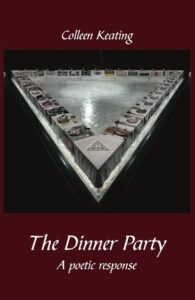
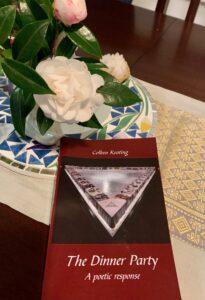
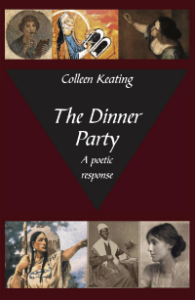
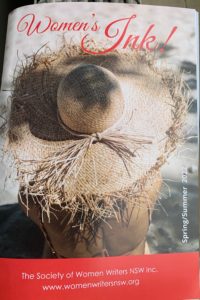
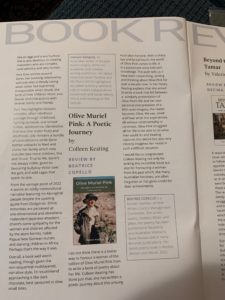
 Reviewed by Beatriz Coppello
Reviewed by Beatriz Coppello